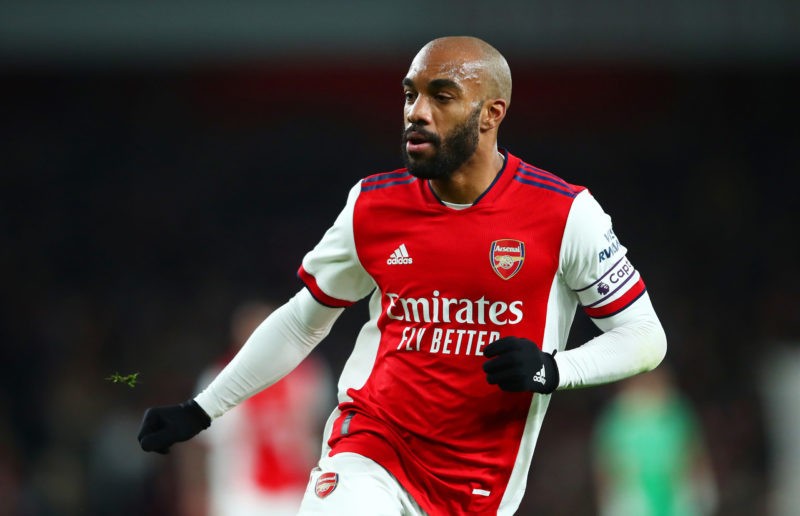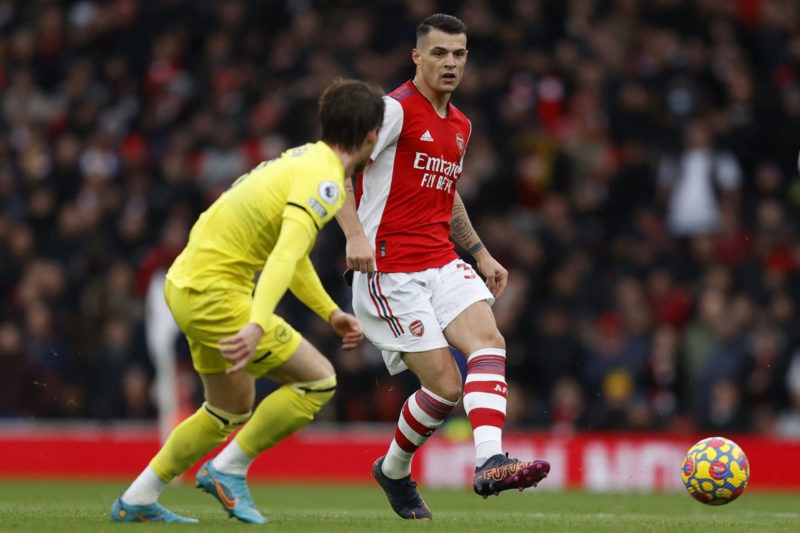Granit Xhaka seemingly turned down the captain’s armband on Saturday against Brentford after Alexandre Lacazette was subbed off, but Mikel Arteta says it was all a misunderstanding.

When Eddie Nketiah replaced Alexandre Lacazette after 84 minutes against Brentford at the Emirates on Saturday, he tried to give the captain’s armband to Granit Xhaka, who was not interested in taking it.
Asked about the incident after the match, Mikel Arteta said it was all simply a misunderstanding.
Nketiah wasn’t meant to give the armband to Xhaka in the first place. It was meant to go to Kieran Tierney, who could well become Arsenal’s new captain in the summer if he’s currently ‘next in line’ in the ‘leadership group’.
“It was for Kieran, he was next in line and that’s why [Xhaka didn’t take it],” Arteta said after the match.
https://twitter.com/DAZN_CA/status/1495079733750546434
“Maybe Eddie didn’t pick up the message and Granit told him to give it to Kieran.”
The Mirror report that Lacazette tried to give it to Tierney before he came off but the defender couldn’t hear him as he prepared to take a throw.
Many outlets are framing this as a ‘controversy’ which it isn’t and the matter shouldn’t be used to manufacture outrage after an impressive performance and good win that kept Arsenal ahead of Spurs in the chase for Champions League football.
“I’m very happy, especially with the way we started the game,” Arteta told Arsenal Media.
“We had really clear intentions, a real purpose to attack them, be consistent, take risks, be direct, have enough runs in behind and threat, put the ball in the box, arrive with numbers, counter-press, don’t allow them to make the transition that they want to do.
“We really controlled the game I think, we played really, really well, but we didn’t score the goal that for sure we merited in that period and then the game is open.
“We started the second half really well, scored a really good goal from Emile and then it was about being patient, score the second one and close the game and we’ve done that. But at the end, unfortunately, we concede a goal on a set piece.
“I think the crowd was really supportive as well because they could see the intentions of the team and what we were trying to do. One thing is to be patient, one thing is to be passive or slow and we played with the right level of urgency, determination and speed, as well as being patient to understand when we had to attack and the moment to expose certain spaces that were available.”
